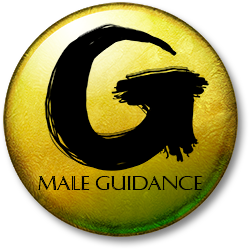
Recognizing Addiction and Seeking Help: A Guide to Recovery
Understanding the Shadows of Addiction
Addiction is a complex and often misunderstood condition that can affect anyone, regardless of age, gender, or background. It’s not just about substances like alcohol or drugs; it can also involve behaviors like gambling or excessive internet use. Recognizing addiction and seeking help are the first crucial steps on the road to recovery. This post aims to guide you through these steps, shedding light on a path that leads to a healthier, more fulfilling life.

Recognizing the Signs of Addiction
1. Physical Dependence: One of the earliest signs of addiction is physical dependence. This can manifest as withdrawal symptoms when not using the substance or engaging in the behavior.
2. Tolerance: An increased tolerance, or needing more of the substance or behavior to achieve the same effect, is a red flag.
3. Loss of Control: Repeatedly using more than intended or for longer periods signifies a loss of control, a hallmark of addiction.
4. Neglecting Responsibilities: Neglecting work, school, or family responsibilities in favor of the addictive behavior is a clear warning sign.
5. Relationship Issues: Strained or broken relationships with friends and family due to the addictive behavior.
6. Continued Use Despite Negative Consequences: Continuing the behavior despite clear negative consequences to health, finances, or relationships.
Steps to Get Help
1. Acknowledge the Problem: Admitting there is a problem is a courageous first step and crucial for moving forward.
2. Talk to Someone You Trust: Opening up to a friend, family member, or healthcare professional can provide support and guidance.
3. Professional Help: Consulting with healthcare providers, therapists, or addiction specialists can offer a pathway to treatment. They can assess your situation and recommend appropriate interventions.
4. Treatment Options:
- Detoxification: Safely withdrawing from the substance under medical supervision.
- Therapy: Individual or group therapy can address underlying issues and teach coping strategies.
- Medication-Assisted Treatment: In some cases, medication can help manage withdrawal symptoms and cravings.
- Support Groups: Groups like Alcoholics Anonymous (AA) or Narcotics Anonymous (NA) offer peer support and a sense of community.
5. Lifestyle Changes:
- Healthy Habits: Establishing a routine that includes exercise, proper nutrition, and adequate sleep can aid recovery.
- New Hobbies and Interests: Engaging in new activities can provide positive outlets and reduce the temptation to relapse.
- Stress Management: Learning stress management techniques is vital, as stress is a common trigger for relapse.
The Journey of Recovery
Recovery is a journey, not a destination. It often involves setbacks and challenges, but with perseverance, support, and the right tools, overcoming addiction is possible. It’s important to remember that recovery looks different for everyone, and there’s no one-size-fits-all solution.
Denouement: Hope and Healing
If you or someone you know is struggling with addiction, know that help is available, and recovery is possible. Recognizing the problem and seeking help are the most significant steps you can take. Addiction doesn’t have to be a life sentence; with the right support and treatment, a new chapter of life, filled with hope and healing, can begin.
Additional Resources
For more information or immediate help, consider reaching out to national helplines, local health services, or online resources dedicated to addiction and recovery. Remember, taking the first step towards help is a sign of strength, not weakness.











